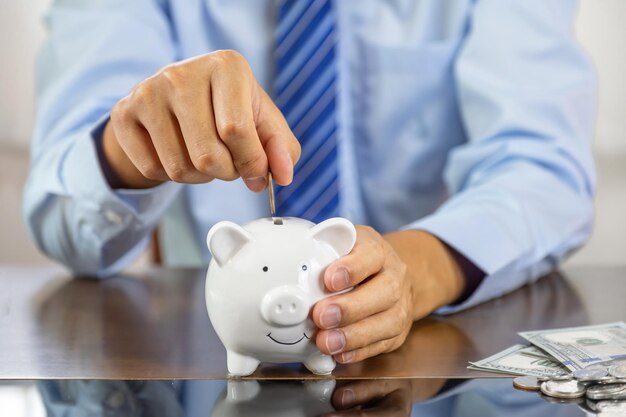Welcome to our guide on strategies to save on your energy and water bills. In this section, we will explore various tips and techniques that can help you reduce your utility costs and lead a more sustainable lifestyle. By implementing these strategies, you not only save money but also contribute to conserving energy and water resources.
Saving on your energy bills starts with adopting energy-efficient practices. From small changes in your daily habits to investing in energy-efficient appliances, there are plenty of ways to lower your energy consumption. By following these tips, you can make a positive impact on the environment and enjoy significant savings on your energy bills.
Similarly, reducing water waste and lowering your water bills can be achieved through various simple yet effective techniques. From installing water-efficient fixtures to implementing smart irrigation systems and practicing water conservation habits, you can make a significant difference. Not only will you save money, but you will also help preserve this valuable resource.
Stay tuned as we dive deeper into these energy-saving and water-saving strategies in the following sections. By making a few changes, you can transform your home into an eco-friendly haven and enjoy the benefits of lower energy and water bills.
Energy-Efficient Tips for Lowering Energy Consumption
Reducing energy consumption is not only good for your wallet but also for the environment. By implementing energy-efficient practices, you can lower your energy bills and contribute to a greener future. Whether you’re looking to make small changes in your daily habits or invest in energy-efficient appliances, these tips will help you save energy and reduce your carbon footprint.
1. Embrace natural light: Make the most of daylight by opening curtains and blinds to let natural light in. This not only reduces the need for artificial lighting but also adds a warm and inviting atmosphere to your space.
2. Use energy-efficient lighting: Replace traditional incandescent bulbs with energy-efficient alternatives such as LED or CFL bulbs. These bulbs last longer and consume less energy, resulting in significant savings over time.
3. Unplug electronics when not in use: Many electronic devices continue to consume energy even when they’re not being actively used. Unplug chargers, turn off power strips, and switch off appliances when they’re not in use to minimize standby power consumption.
4. Optimize your heating and cooling: Set your thermostat to a comfortable yet energy-saving temperature. Use programmable thermostats to automatically adjust the temperature based on your schedule, reducing unnecessary energy consumption.
Invest in energy-efficient appliances:
Upgrade your appliances to energy-efficient models that have earned the ENERGY STAR® label. These appliances are designed to consume less energy without sacrificing performance. From refrigerators and washing machines to TVs and computers, ENERGY STAR-certified products can help you lower your energy bills while protecting the environment.
6. Weatherize your home: Seal air leaks around windows, doors, and other openings to prevent drafts and improve insulation. Proper insulation helps maintain comfortable indoor temperatures and reduces the workload on heating and cooling systems, resulting in lower energy consumption.
7. Utilize power-saving features: Take advantage of power-saving settings on your electronic devices. Enable sleep mode on your computer, activate power-saving modes on your smartphones and tablets, and adjust power settings on gaming consoles to minimize energy usage.
8. Energy-efficient landscaping: Planting trees and shrubs strategically around your home can provide shade during hot summers, reducing the need for air conditioning. Additionally, properly placed plants can act as windbreaks, helping insulate your home during cold winters.
9. Conserve hot water: Lower your water heater temperature to 120°F (49°C) to save energy. Insulate your water heater and fix any leaks to minimize heat loss. Additionally, consider using cold water whenever possible for laundry and opt for shorter showers to reduce hot water consumption.
By following these energy-efficient tips, you can make a significant impact on your energy bills and contribute to a more sustainable future. Saving energy not only benefits your pocket but also helps preserve our planet’s valuable resources.
Water-Saving Techniques for Lowering Water Bills
Reducing water consumption not only helps in conserving this precious resource but also contributes to significant cost savings on your water bills. By implementing a few simple water-saving techniques, you can make a positive impact on your wallet and the environment.
One effective method to lower your water usage is by installing water-efficient fixtures. By replacing outdated faucets, showerheads, and toilets with low-flow alternatives, you can significantly reduce water wastage without compromising on functionality. These fixtures are designed to deliver optimal performance while using less water, translating into long-term savings on your utility costs.
Another smart approach is to implement a smart irrigation system for your outdoor spaces. These automated systems use weather data and soil moisture sensors to optimize watering schedules, ensuring that your plants receive just the right amount of water they need, no more, no less. By leveraging technology in this way, you can avoid overwatering, prevent water runoff, and ultimately reduce your overall water expenses.
In addition to installing efficient fixtures and irrigation systems, practicing water conservation habits is essential in further decreasing your water bills. Simple actions such as taking shorter showers, turning off the tap while brushing your teeth, and fixing leaky pipes promptly can save gallons of water each day. By cultivating these sustainable habits, you not only contribute to water conservation efforts but also experience considerable savings on your utility bills in the long run.

